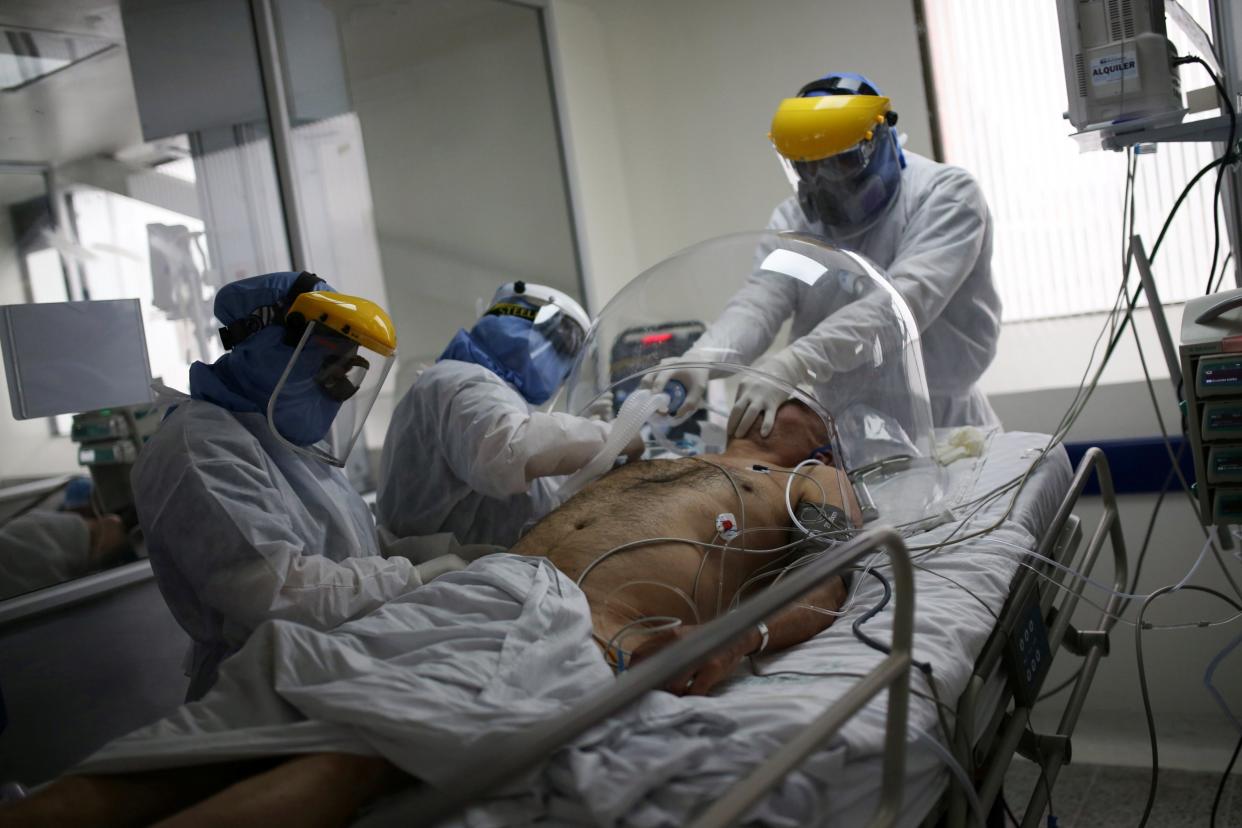Coronavirus survivors at risk of PTSD, doctors warn

Survivors of coronavirus who fell seriously ill with the disease should be screened for post-traumatic stress disorder (PTSD), a group of leading doctors has urged.
Patients who required intensive care or hospital treatment are especially at risk of developing mental health issues due to the psychological trauma from battling the infection, the medics said.
The Covid Trauma Response Working Group, led by University College London, is made up of medical experts and doctors who say tens of thousands of people who were admitted to hospital with Covid-19 should be assessed and checked regularly for signs of PTSD.
PTSD involves symptoms such as flashbacks, nightmares, avoidance of thoughts or feelings connected to a traumatic experience, negative changes in thoughts or mood and constantly feeling on edge.
Research by the group found that some people discharged from intensive care after being seriously ill with Covid-19 felt panicky when going out alone in case they became sick or felt angry with themselves for not being “back to normal by now”.
Psychiatrist Michael Bloomfield, who is on the working group, told the BBC that patients whose conditions became serious enough to be admitted to hospital have faced “a very frightening and invasive” experience.
“We need to make sure we support these patients,” he said. “Services in place are very variable. Failure to do more could have long-term consequences.”
More than 100,000 people have been treated for Covid-19 in hospital. The group highlighted research which showed 30 per cent of patients who went through severe illnesses in previous outbreaks had developed PTSD.
“We are in the midst of the gravest global health crisis in living memory, which poses threats not only to physical health, but also to mental health,” said the group in a statement.
“Despite the anticipated high rates of psychological trauma, people are resilient. Most people will cope and recover. We are concerned, however, that the necessary social measures implemented to reduce the physical spread of Covid-19 can interfere with many people’s usual coping mechanisms.”
They also called for research to evaluate how different groups were affected by and coped with psychologic distress linked to the pandemic and to review the effectiveness of any interventions in the longer term.
An NHS spokesperson said: “The pandemic has turned lives upside down and some coronavirus survivors may suffer from a related mental disorder which is why NHS therapy has been sustained along with rapidly expanded community rehab services.
“Any Covid survivor who had to stay in hospital as they were treated for the illness will have a follow up appointment with either their hospital team or their GP which will include a review on whether they need mental health support – and anybody who thinks they would benefit from psychological treatment can refer themselves directly into mental health services without needing to see their GP.”

 Yahoo News
Yahoo News 
